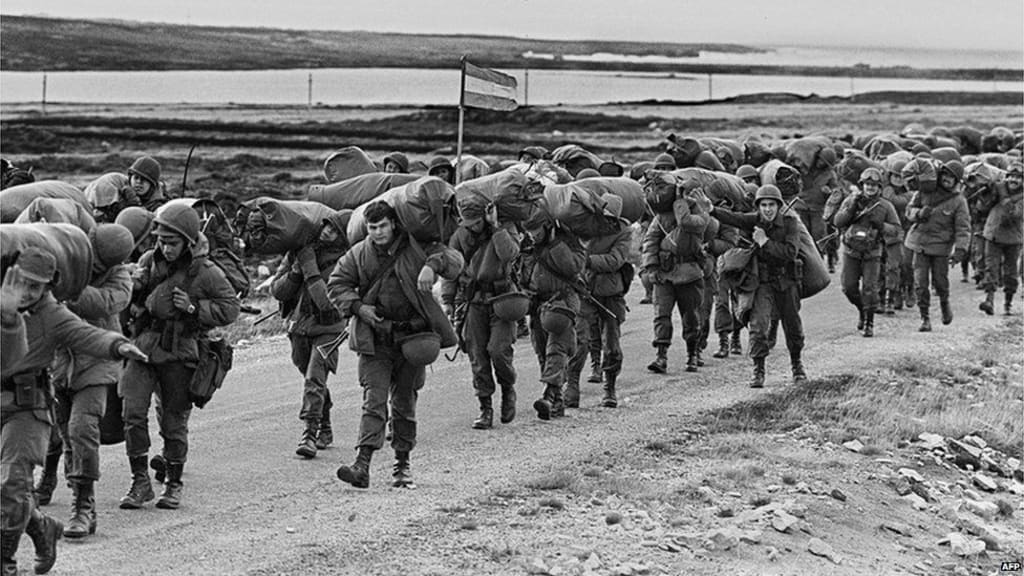
Argentina's history is marked by periods of both relative peace and devastating conflict. While the nation hasn't been embroiled in a major war in recent decades, understanding its past struggles sheds light on its social fabric, political landscape, and ongoing debates about sovereignty. This article delves into two significant conflicts that shaped Argentina: the Dirty War and the Falklands War.
The Dirty War: A Brutal Campaign of State Terrorism (1976-1983)
The Dirty War, also known as the Process of National Reorganization (Proceso de Reorganización Nacional), wasn't a war in the traditional sense. It was a period of state terrorism unleashed by a military junta that ruled Argentina from 1976 to 1983. Fearful of leftist activism and social unrest, the regime targeted anyone suspected of dissidence, including political opponents, trade unionists, students, and intellectuals.
Estimates suggest that between 10,000 and 30,000 Argentines were "disappeared" during this dark chapter. These individuals were abducted, tortured, and often murdered by the military and security forces. Clandestine detention centers became notorious symbols of the regime's brutality. Mothers of Plaza de Mayo, a group of women whose children were disappeared, became an enduring symbol of resistance and the fight for human rights.
The Dirty War's legacy continues to cast a long shadow over Argentina. Efforts to locate the remains of the disappeared and bring those responsible to justice are ongoing. The period serves as a stark reminder of the dangers of authoritarian rule and the importance of upholding human rights.
The Falklands War: A Tense Standoff with Britain (1982)
The Falklands War, known in Argentina as the Malvinas War (Guerra de Malvinas), was a brief but bloody conflict fought between Argentina and the United Kingdom in 1982. The dispute centered on the Falkland Islands (Islas Malvinas in Argentina) and South Georgia and the South Sandwich Islands, located in the South Atlantic Ocean. Argentina has long claimed sovereignty over the islands, which were seized by Britain in 1833.
In April 1982, Argentina's military junta, facing internal political pressures, invaded the Falklands in a bid to bolster its nationalistic image. The British government responded swiftly, dispatching a naval task force to retake the islands. The ensuing conflict lasted for 74 days, with fierce fighting concentrated around the capital, Port Stanley.
Ultimately, the British forces emerged victorious, with over 649 Argentine and 255 British military personnel losing their lives. The war ended the military junta's rule and ushered in a period of democratic transition in Argentina. However, the sovereignty dispute over the Falklands remains unresolved, a constant source of tension between the two nations.
The Impacts of War: Beyond the Battlefield
Both the Dirty War and the Falklands War had a profound impact on Argentina, shaping its social, political, and economic landscape.
Social and Psychological Scars: The Dirty War left deep emotional wounds on Argentine society. Families were torn apart, and the fear of state violence cast a long shadow. The quest for justice for the victims and the disappeared continues to be a significant social issue.
The Rise of Democracy: The Dirty War ultimately led to the demise of the military dictatorship and the return to democracy in Argentina. However, the transition was a delicate process, and the legacy of the violence continues to influence political discourse.
Economic Turmoil: Both wars placed a significant strain on Argentina's economy. The Dirty War disrupted economic activity due to political instability and social unrest. The Falklands War caused further damage due to military spending and international sanctions.
The Question of Sovereignty: The Falklands War reignited the debate over Argentina's claims to the disputed islands. While negotiations continue, the issue remains a point of national pride and a symbol of Argentina's desire to assert its sovereignty on the global stage.
Looking Forward: Reconciliation, Resolution, and the Importance of Memory
Argentina has come a long way since the dark days of the Dirty War and the Falklands War. Democracy has taken root, human rights are enshrined in the constitution, and the economy has recovered significantly.
However, the scars left by these conflicts remain. Argentina continues to grapple with the legacy of the Dirty War through trials of former perpetrators and efforts to identify and return the remains of the disappeared. The issue of sovereignty over the Falklands is still a live political debate.
Moving forward, Argentina's path lies in continued economic development, social reconciliation, and fostering international cooperation. Addressing the historical wounds left by war and remembering the victims are crucial steps in building a more just and peaceful future.
About the Creator
postworldview
We hope for a better world, and come to terms with reality.
Enjoyed the story? Support the Creator.
Subscribe for free to receive all their stories in your feed. You could also pledge your support or give them a one-off tip, letting them know you appreciate their work.






Comments
postworldview is not accepting comments at the moment
Want to show your support? Send them a one-off tip.